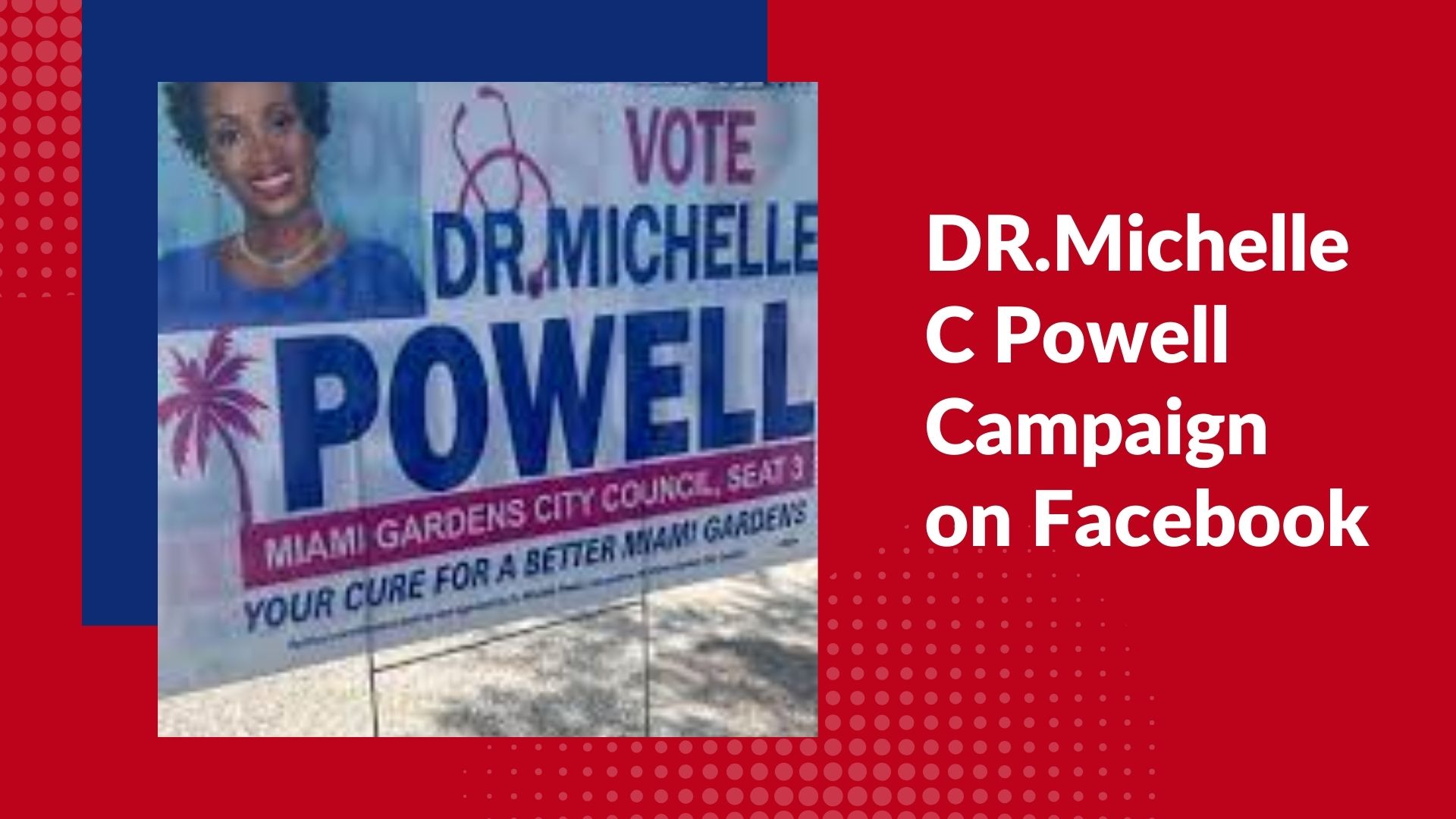Discuss the specific strategies Dr. Powell employed in her Facebook campaign that contributed to its success.
A Detailed Look at Dr. Michelle C. Powell’s Campaign on Facebook
In the digital age, social media has become one of the most powerful tools for political campaigns, advocacy, and community engagement. Facebook, in particular, serves as a central platform for candidates and public figures looking to connect with voters, raise awareness, and build a supportive online community. If Dr. Michelle C. Powell is running a campaign on Facebook—whether political, advocacy-driven, or community-based—it would follow many of the established strategies that successful social media campaigns leverage.
1. Establishing a Strong Facebook Presence

The first step in any campaign on Facebook is to establish a clear, professional, and authentic presence. For Dr. Michelle C. Powell, whether she is running for political office or promoting a cause, creating a dedicated Facebook page is essential. This page should highlight key elements of the campaign:
- Profile and Cover Photos: These should feature professional photos that communicate the essence of the campaign—whether it’s Dr. Powell’s face, her mission, or campaign slogans. A cover photo could highlight the main message of her campaign or a powerful call to action.
- About Section: The “About” section should provide visitors with a succinct explanation of who Dr. Powell is, what she stands for, and what her campaign aims to accomplish. This section serves as a first introduction to new followers and supporters.
- Content Strategy: Regular and varied content is critical. A combination of personal updates, campaign announcements, educational posts, behind-the-scenes content, and endorsements can keep followers engaged. These posts could be in the form of text, images, video clips, or even live broadcasts.
2. Engaging the Audience
Facebook’s interactive features—such as comments, polls, and live videos—are crucial for audience engagement. Dr. Powell could use these tools to:
- Interact with Followers: Dr. Powell could engage directly with her followers by responding to comments and starting conversations. Personal interaction helps build trust and loyalty among the campaign’s base.
- Live Q&A Sessions: Hosting live video sessions where Dr. Powell answers questions from supporters or discusses important campaign topics is a great way to humanize the campaign and build a sense of transparency.
- Polls and Surveys: Running polls and surveys on various issues can help Dr. Powell gather valuable insights into voter concerns and preferences, while also engaging people on issues they care about.
- Facebook Groups: Creating or joining relevant Facebook groups that align with the campaign’s values or mission can be beneficial for expanding the reach of the campaign. These groups foster a sense of community and can be used to organize events or rallies.
3. Content Creation and Storytelling

In a political or advocacy campaign, storytelling is a powerful tool. Dr. Powell could use storytelling to share personal stories or the stories of people impacted by the issues her campaign addresses. This could include:
- Video Clips: Short, compelling video clips explaining the campaign’s goals or Dr. Powell’s vision can be shared widely on Facebook, allowing the campaign to connect emotionally with the audience.
- Testimonial Posts: Featuring testimonials from supporters, community members, or key figures who endorse Dr. Powell would be powerful social proof for the campaign.
- User-Generated Content: Encouraging followers to share their stories or show their support with photos or videos is an effective way to create a sense of movement. Dr. Powell can ask her supporters to share photos with campaign materials, which she can repost.
4. Targeted Advertising
Facebook’s advertising platform allows for precise targeting, which can be a game-changer in any campaign. Dr. Powell could run paid Facebook ads to increase the campaign’s visibility and attract more followers or donors. Some strategies could include:
- Geographic Targeting: Ads can be tailored to specific geographical locations, such as local communities, districts, or states, helping the campaign focus its efforts on the most relevant voters.
- Interest and Demographic Targeting: Facebook ads allow campaigns to target people based on their interests, age, occupation, and more. This can help Dr. Powell reach voters who are most likely to be interested in her policies and initiatives.
- Ad Formats: Utilizing various ad formats such as image ads, video ads, carousel ads, and event promotion ads would help keep the content dynamic and engaging.
5. Fundraising and Call to Action
Social media platforms like Facebook provide tools to streamline fundraising efforts. Dr. Powell can use Facebook’s donation features to collect contributions from her supporters directly through her page. Additionally, campaigns on Facebook often include multiple calls to action (CTAs):
- Donations: Including donation buttons in posts and ads allows for seamless contributions, encouraging people to support the campaign financially.
- Event Promotion: If Dr. Powell is hosting rallies, town halls, or other events, she can use Facebook to promote these events and encourage participation.
- Volunteer Sign-Ups: Facebook provides options for supporters to sign up as volunteers. This allows the campaign to build a network of dedicated people who can help spread the word or assist with logistical tasks.
6. Measuring Success and Optimizing the Campaign

Facebook provides detailed analytics and insights that allow campaigns to track engagement, reach, and conversion rates. Dr. Powell can use this data to assess which posts and ads are performing well and adjust her strategy accordingly.
- A/B Testing: Running A/B tests on various content (e.g., post images, headlines, or video lengths) can help optimize future posts for maximum engagement.
- Feedback and Analytics: By constantly reviewing feedback and data, Dr. Powell can identify trends, concerns, and opportunities for further engagement.
Conclusion
Dr. Michelle C. Powell’s campaign on Facebook, assuming it aligns with common campaign practices on the platform, would need to embrace various tools and strategies to effectively engage with her audience. A successful Facebook campaign would prioritize clear communication, authentic interaction, content that resonates emotionally, and targeted ads.
The power of Facebook lies in its ability to connect people, build communities, and spread information quickly. A well-run campaign can leverage these capabilities to foster support, raise funds, and mobilize people for a cause. As Dr. Powell navigates her Facebook campaign, she must remain transparent, responsive, and adaptable to ensure that her message reaches as many people as possible while fostering genuine connections with her audience. By doing so, she can create a campaign that not only succeeds in the digital realm but also resonates deeply with her supporters and leads to meaningful change in the real world.
FOR MORE DETAILS: Facebook’s Official Guide on Political Ads
Also Read: 10 Proven Strategies for Multistreaming on Instagram and Facebook: A Comprehensive Guide

